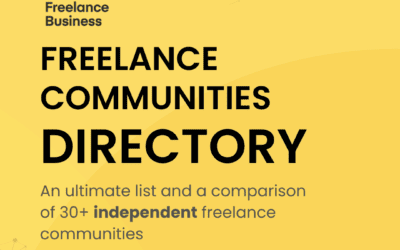You might have been freelancing for a while and could have never heard about “false self-employment”, but it is a serious issue. What does it mean, why should you be concerned and how to avoid it? We have clarified this issue below.
What is false self-employment?
In summary: someone can be considered false self-employed if they work full-time for an organisation, which could have hired them instead as a full-time employee.
As we have learned in this article, hiring a freelancer in Belgium is often more beneficial for a company than using a fixed employee. Not only do they win on minimising the cost of having a talent onboard quicker, but also pay less tax than if they had a fixed-term contract employee. Governments like to control this aspect and non-compliant organisations may face a fine.
To look deeper into the subject, let’s start with definitions. A self-employed person or independent freelancer, is, as the phrase states, independent from the company. His or her independence shows in the manner of how they work. The independent contractor defines his/her own working schedule and place, and chooses his/her clients or organisations to work with. A job giver (company) can’t oblige a freelancer to stick to a full-time schedule or to come to the office. In other words, you are not working under any authority or you are not obliged to report to anyone within the organisation hierarchy. As soon as such a type of relationship occurs, you can be classified as an employee and blamed for false self-emplyment.
How to avoid requalification?
To avoid the requalification and potential issues for your customers, you need to have a solid freelance contract, which is not the same as an employment contract. Therefore, if you don’t have your own freelance services contract template, you better get one. Not every organisation is prepared to hire freelancers, and they may not have such documentation in place. You can find more about contracts here.
Please note that the agreement you will put in place with your client should not specify the working hours or the subordination (i.e. you don’t have a boss). You are also not expected to extensively report on what you do (as typically expected from employees), but only on what is related to the project.
You also should not seek approvals for your vacations and absence. You can inform your client about your time off, but they don’t need to approve it. So ideally, don’t put these requests in writing.
Make sure that you don’t sign exclusivity agreements, as this may imply that you won’t work with other organisations. The core principle of being a true freelancer (to avoid the reclassification) is that you work with more than one client.
Have your own invoice template and payment conditions on it. You can find more about invoices here.
You should be using your own equipment such as a phone and laptop. The company can provide you with equipment and resources, but it shouldn’t oblige you to use them.
The compliance officer will check the organisation chart to see if you, as a freelancer, have an official status. While this procedure sounds very doubtful to us (we know lots of freelancers who are in leading roles in companies), it may still get the company in trouble.
As a freelancer, you should also not have evaluations or performance reviews as they do with staff. You of course are free to perform your own project performance reviews, if this is part of your work.
What if you have been claimed to be a fake self-employed?
In the situation when the NSSO decides to reclassify you from self-employed person to employee, there is nothing that can happen to you personally, but there is a heavy penalty for your client.
If a freelancer is reclassified as an employee, then it is an extra burden for the company to comply with social security payments (holiday allowance, indexation, etc).
In the case of employment, the employer is the one who pays the social security contributions both from the company side and from the employee side. In the situation of reclassification, the company can be forced to pay 3-7 years of such fees.
It may also lead to potential disputes about paid tax amounts and VAT charges, not to mention additional fines a company may be entitled to.
How to avoid it?
Apart from having a freelance contract, you can also prove that you are a real freelancer, if you carry your own financial risk and pay your own expenses, you can hire people (other freelancers) for the work you do, you pitch yourself to others and look for other customers, or you have other customers, you work from home and are not required to be in an office. In this case, you cannot be blamed for being a false self-employed person.
Your role as a freelancer is to be aware that such control may happen. Be a trusted advisor to your clients and help them fix relationships with you as a freelancer in the most secure way for them. Again, let me repeat – make sure you have a solid contract.
If you are a HR specialist from a company hiring freelancers, perhaps you already have such an agreement in place. If not, companies like Charipickers can help you action this vital step.
As you may read here, on the official website of the Belgian Government, this law is supposed to protect the workers from potential loss of their social protection (such as sick leave pay, paid notice period and tax prepayment), but another reason could be that as independent contractors, there are more possibilities to optimise the tax and social contributions, which are paid quarterly, not monthly, and may result in lost revenue for the state.




